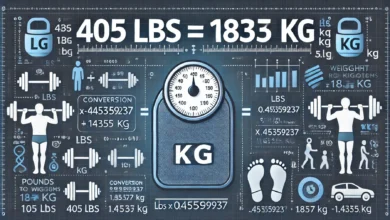120 mm to Inches: Simple Conversion Guide for Everyday Use

Introduction
Ever found yourself staring at a measurement in millimeters and thinking, What does this mean in inches? If you’re dealing with 120 mm and need to convert it to inches, you’re in the right place! Whether you’re measuring something for a DIY project, ordering parts online, or just curious, knowing how to convert millimeters to inches can be super useful.
In this post, we’ll break down the conversion process in a simple way, explain why this measurement is important, and even give you a few real-world examples where this knowledge comes in handy.
How to Convert 120 mm to Inches
The Basic Formula
To convert millimeters (mm) to inches, use this simple formula: Inches=Millimeters÷25.4\text{Inches} = \text{Millimeters} \div 25.4Inches=Millimeters÷25.4
So, if we plug in 120 mm: 120÷25.4=4.7244 inches120 \div 25.4 = 4.7244 \text{ inches}120÷25.4=4.7244 inches
That means 120 mm is approximately 4.72 inches (rounded to two decimal places).
Quick Reference Conversion Table
| Millimeters (mm) | Inches (in) |
|---|---|
| 10 mm | 0.39 in |
| 50 mm | 1.97 in |
| 100 mm | 3.94 in |
| 120 mm | 4.72 in |
| 150 mm | 5.91 in |
| 200 mm | 7.87 in |
If you need an even quicker estimate, just remember that 1 inch is about 25 mm, so 120 mm is roughly 4.7 inches.
Why Does Converting 120 mm to Inches Matter?
You might be wondering, Why do I even need to know this? Here are a few practical reasons why converting millimeters to inches can be useful:
- Online Shopping: Some international websites list product dimensions in millimeters. If you’re in the U.S. or another country using inches, converting helps ensure you’re ordering the right size.
- Home Improvement & DIY Projects: If you’re working on a home project and using tools that measure in inches, knowing the conversion makes things much easier.
- Science & Engineering: Many fields require quick conversions between metric and imperial measurements, especially in technical work.
- Crafting & Sewing: Many patterns or materials might be listed in millimeters, but your tools might be marked in inches.
How to Convert 120 mm to Inches Without a Calculator
If you’re in a pinch and don’t have a calculator handy, here’s a simple trick:
- Remember the rule of 25 mm ≈ 1 inch.
- Since 120 mm is a little under 125 mm (which is exactly 5 inches), you know the answer is slightly less than 5 inches.
- A rough estimate is about 4.7 inches, which is close enough for most casual uses.
Other Common Measurement Conversions
If you’re dealing with other common conversions, here are some quick estimates:
- 50 mm ≈ 2 inches
- 75 mm ≈ 3 inches
- 200 mm ≈ 8 inches
Want a super-easy way to convert measurements? Bookmark an online conversion calculator or just ask your phone’s voice assistant!
Conclusion
Now you know that 120 mm equals 4.72 inches and why this conversion can be helpful in daily life. Whether you’re shopping online, working on a project, or just curious about measurements, understanding how to convert mm to inches is a handy skill.
Next time you see a measurement in millimeters, you’ll know exactly how to figure it out in inches—no confusion needed!
Frequently Asked Questions (FAQs)
1. How many inches is exactly 120 mm?
120 mm is 4.7244 inches, but most people round it to 4.72 inches for simplicity.
2. What is the easiest way to convert millimeters to inches?
Divide the millimeter value by 25.4, or remember that 25 mm is roughly 1 inch for a quick estimate.
3. Why do some countries use mm while others use inches?
Most countries use the metric system (millimeters, centimeters, meters), while countries like the U.S. still use the imperial system (inches, feet, yards).
4. Can I use an online calculator for mm to inch conversions?
Absolutely! Just type “120 mm to inches” into Google, and it will instantly give you the answer.
5. Is 120 mm bigger than 4 inches?
Yes! 120 mm is 4.72 inches, which is almost ¾ of an inch more than 4 inches.




